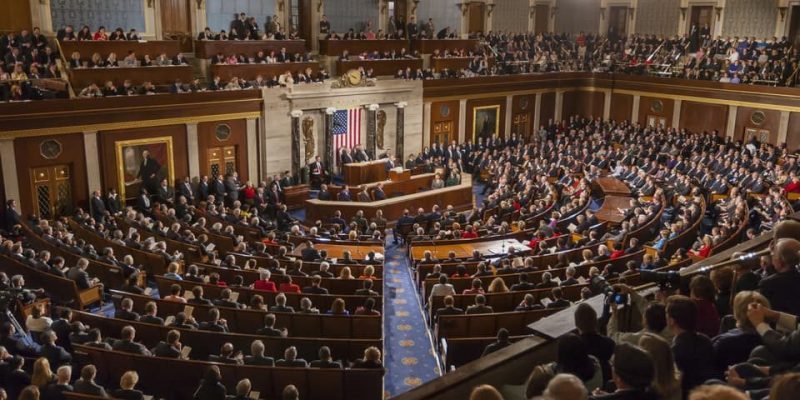We explain what society is, how it is classified and the functions it presents. Also, what are its characteristics, structure and more.
What is the Society?
By society we understand a group of individuals (generally humans , although it can also refer to certain gregarious animals) that are governed by common regulations and forms of communication and cooperation, often referred to as “ culture ”.The constitution of a company generally involves a significant number of individuals, although there are no defined numerical margins in this regard . Instead, it is vital that they share defining characteristics in terms of culture, history, economics and share the same geographic territory; all this above consanguineous or genetic ties.
Human societies are the object of study of Sociology , which seeks to understand the laws of organization and regulation of societies.
Types of companies
 The study of human societies allows their classification based on different criteria, such as:
The study of human societies allows their classification based on different criteria, such as:
- Its historical evolution. That is, its location in the history of mankind. They are divided into:
- Ancient or pre-industrial societies. Those that took place before the Industrial Revolution . They are generally divided into: 1) hunter-gatherers and 2) agricultural and livestock.
- Industrial societies. Those after the human development of industrial technology .
- Its degree of complexity. Determined by the level of interaction of its elements. They are divided into:
- Simple or primitive. Whose organization is tribal or small, generally governed by a patriarch or matriarch for life, and in which the tasks of society are not very well distributed (there is little specialization).
- Complex Societies with structured political and government systems , with significant margins of specialization in the distribution of tasks (high specialization) and marked social stratification.
- Its dominant culture. Societies can often be classified on the basis of the strongest cultural presence, which tends to rule over other cultures, both politically, socially and in terms of identity. Thus, we can speak of Islamic society, Catholic society, Western society , European society , American society , literate society, knowledge society, information society, etc.
The animal "society"
Although it is not exactly a classification, it tends to distinguish between human society, with all the diversities, variants and complexities that characterize it (especially if we try to see it as a planetary whole) and “animal societies”, which is the name that we can give the very primary level of social and territorial organization that certain animals can achieve .
Need for norms in society
 All societies require rules for their operation: laws and social codes that regulate the various aspects of life .
All societies require rules for their operation: laws and social codes that regulate the various aspects of life .Some of these norms are coercive, imposed by society on its new members , transmitted from generation to generation; while others are rather optional, subjective, belonging to the private sphere and function rather as a mode of recognition between individuals, who by acting in a similar way recognize themselves as equals before society.
All members of a society agree to a greater or lesser extent to be governed by rules.
More in: Social norms .
Stratification of companies
Societies present a greater or lesser degree of stratification , that is, of organized and hierarchical social layers or strata.These can be distinguished from each other on the basis of various material, cultural or political conditions.
For example, in Indian society there are social castes that are very far apart , with little permeability between one and another, while in Western capitalist societies there are social classes that are distinguished from each other by their wealth and material goods .
Society functions
 The existence of a company is considered to fulfill the following functions:
The existence of a company is considered to fulfill the following functions:
- Make up a territory. There are no nations, countries or territories if they are not inhabited by some specific society that defines them, names them and establishes them as the home of their culture.
- Allow relationships. Since society operates on the basis of commonly agreed rules, its existence establishes a social pact that orders life and allows relationships between its individuals, in terms different from those of the vital competition of the wild.
- Build an imaginary. The members of a society usually share a more or less broad way of seeing things and thinking about the world. This is what is called a culture or, also, an imaginary, since it is a way of imagining the world. Without it, social identities could not exist.
- It proposes a political model. Without a political model of governance and hierarchy, societies would be chaotic. For this reason, there are political theories and organisms in the different possible political regimes that allow the exercise of politics .
- It meets the needs of its population. In principle, and in one way or another, each society will tend to fulfill the desires and needs of its population , whether materially and economically or socially and spiritually, and through methods accepted or condemned by itself.
Elements of society
 We can speak of two types of constituent elements of a society:
We can speak of two types of constituent elements of a society:
- Materials. Those physical and concrete, such as a delimited territory (physical space) and a number of members (population).
- Immaterial. Those of an imaginary, cultural, spiritual or social nature such as a language of one's own, a series of moral and spiritual values, a national identity , etc.
Structure of the companies
The structure of a society is the mode of operation of its various parts , that is, its architecture .There the social strata or population groups take place , the various social institutions (public or private), the bodies of laws, the organizations of socialization, repression and legislation (such as the courts, prisons, security forces, the military, the universities and schools , etc.).
Each stratum and each institution, in accordance with the adopted model of society, will have a specific series of functions to fulfill.
For example, in a theocratic society the dominant church will also have political power , while in a secular society , there will be institutions alien to religion.
Origin of the companies
 The societies that make up human civilization are as old as the human being himself , so there is no specific creation date.
The societies that make up human civilization are as old as the human being himself , so there is no specific creation date.It is estimated that ancient societies, prior to the invention of writing , were tribal-type societies that gradually grew in number and complexity.
It can serve you: Prehistory .
Evolution of societies
It is possible that particularly revolutionary events in the history of man can give rise to the birth of a new society, such as great technological developments , sudden changes in the social or political order (revolutions), or mixing and syncretism between different cultures (as in the case of Latin America ).
New partnerships
 The future of human societies is a source of continuous speculation. However, traits such as diversity, multiple identities and technological dependence seem to be central factors in the so-called “new societies”, such as the global or virtual society .
The future of human societies is a source of continuous speculation. However, traits such as diversity, multiple identities and technological dependence seem to be central factors in the so-called “new societies”, such as the global or virtual society .The above content published at Collaborative Research Group is for informational and educational purposes only and has been developed by referring reliable sources and recommendations from technology experts. We do not have any contact with official entities nor do we intend to replace the information that they emit.
MA student of the TransAtlantic Masters program at UNC-Chapel Hill. Political Science with a focus on European Studies. Expressed ideas are open to revision. He not only covers Technical articles but also has skills in the fields of SEO, graphics, web development and coding. .
Leave a reply
Your email address will not be published. Required fields are marked *Recent post

Sport: What Is It, Types, Risks, Features, Characteristics and Examples
September 23, 2021

Dogs: Emergence, Features, Characteristics, Feeding and Breeds
September 24, 2021

Story: Definition, Elements, Structure, Features and Characteristics
September 24, 2021

Essay: Definition, Structure, Features, Characteristics, How to Do It
September 24, 2021
